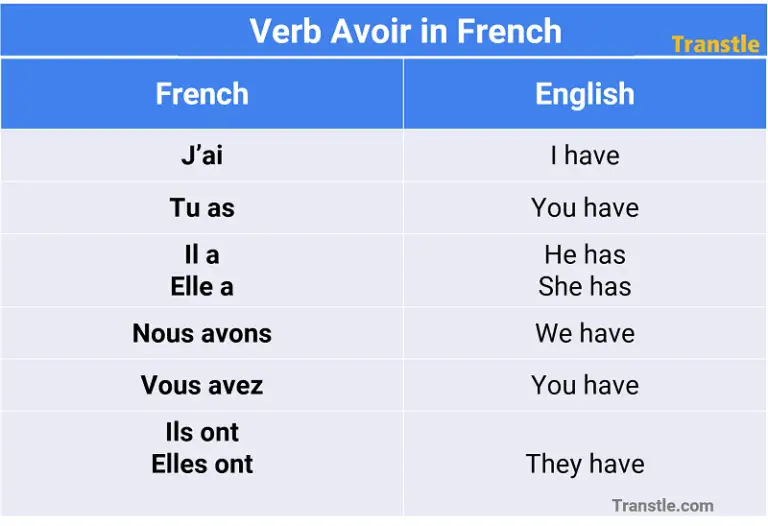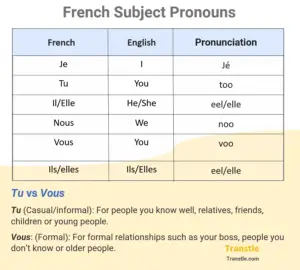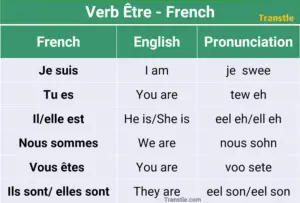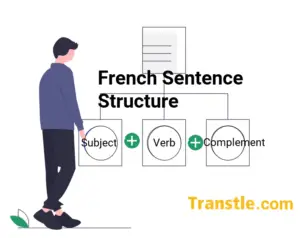Avoir: How To Use it, Conjugation And Examples
Verb avoir
The verb “Avoir” is a French verb meaning “to have”, and is the second most commonly used verb in French after the verb “être” (to be) and is used to indicate ownership or possession, to express states or feelings, and to form compound tenses for actions or events (I have, you have, they had, etc.).
Examples:
- Ownership or possession: I have a dog – J’ai un chien.
- States or feelings: I am hungry – J’ai faim.
- Compound tenses: I have eaten a cake. – J’ai mangé un gâteau.
Conjugation of avoir
Presen simple

| French | English |
| J’ai (Je ai) | I have |
| Tu as | You have |
| Il / Elle a | He / She / It has |
| Nous avons | We have |
| Ils / Elles ont | They have |
Examples or sentences with the verb avoir
|
How to use avoir
Avoir is a fundamental verb in French, both for its own meaning and for its role in the conjugation of other verbs. It performs two main functions in French:
- Main verb:
- It indicates possession or ownership: “J’ai un livre” (I have a book).
- It expresses states or feelings: “J’ai faim” (I am hungry), “J’ai peur” (I am afraid).
2.Auxiliary verb:
- It is used to form compound tenses: “J’ai mangé” (I have eaten).
Property or possesion
Subject + verb avoir + what is owned or possessed
|
Feelings or states
Subject + avoir + complement (the feeling)
|
Avoir as an auxiliary verb
“Avoir” is an auxiliary verb essential for the formation of compound tenses, those that express actions or events that have already occurred. Its main function is to “help” the main verb to conjugate in these tenses.
The general structure for forming compound tenses with “avoir” is as follows:
Subject + Auxiliary Verb (Avoir) + Main Verb + Complement
|
In the previous sentences, avoir is the auxiliary and “to eat” and “to cut” are the main ones.
Contractions
A contraction is a shortened form of two words by removing one or more letters, and in French, it is common to make contractions with the first person singular “Je.” For example, instead of “Je ai un frère,” one uses the contraction “J’ai un frère,” removing the letter “e” from “Je” and replacing it with an apostrophe. This contraction is common in spoken and written French.
Avoir in l’imparfait
L’imparfait expresses a fact or action that has already taken place at the time of speaking, but which may still be relevant as in the sentence “María had played”
| French | English |
| J’ avais (Je avais) | I had |
| Tu avais | You had |
| Il / elle / avait | He/ She had |
| Nous avions | We had |
| Vous aviez | You had |
| Ils / elles avaient | They had |
Examples with L’imparfait
|
Exercises
Now practice the verb avoir with the following test or exercises.

Time's up
Read next



